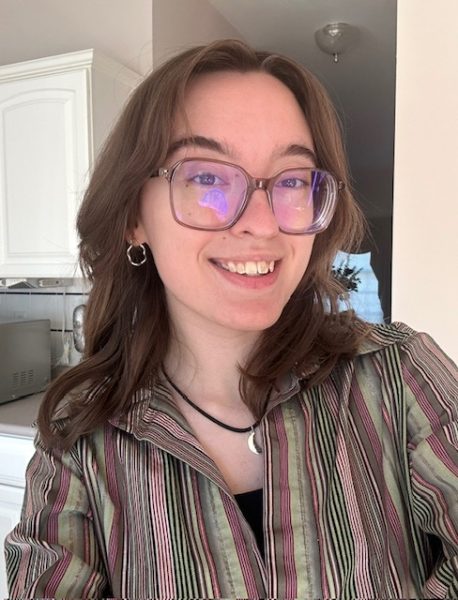Being employed at a bookstore this past summer, I had my fair share of customers on the hunt for Colleen Hoover’s sought-after books. Every time I’d guide someone to the shelves, it’d take everything in me to not cordially recommend alternative reads. Instead, I’d put my thoughts aside and hand them a copy of “It Ends with Us” or “November 9.” While I’ve never personally taken the time to read Hoover’s books, I’ve seen more than enough excerpts and anti-Hoover rants on social media to know that her novels romanticize abuse.
I first heard about Hoover in 2021 when my high school classmates began to seek out her work. This was right around the time the Texan author was first becoming popular on TikTok’s reading community, BookTok. Although she’s been writing since 2012, her quick turnaround time has attracted hoards of readers in recent years. Hoover’s fanbase, primarily teenage girls and middle-aged women, gravitate toward her novels because they are notoriously fast reads, and entice readers with their promise of eventful plotlines.
A user on Goodreads by the name of Sasha Alsberg posted, “Finished ‘Ugly Love’ in exactly 24 hours, couldn’t put it down! Now I know what all the fuss is about with Colleen Hoover books.”
Although I understand the appeal of a quick read every now and then, especially to get out of a reading slump, I truly believe there’s better options. Considered “beach reads,” Hoover’s novels are categorized as “romance,” although some of her books have overtones of suspense or traits associated with the psychological thriller genre. I take issue with her novels being marketed as romance since they entail themes such as manipulation and physical abuse in intimate relationships.
“I went into this (“It Ends with Us”) with the intention of liking it, but ended up feeling uncomfortable by the tone of this book,” said a Goodreads user by the name of Olivia. “This book is marketed as romance, and the synopsis makes it seem like a lighthearted love triangle instead of a woman’s experience with spousal abuse.”
It is extremely important to raise awareness of abuse– however, I believe the way in which Hoover goes about writing such a topic is in bad taste. “It Ends with Us,” which was also released as a film in August, stands to illustrate my point. The novel follows Lily Bloom, the main character, as she experiences manipulation and physical abuse from her partner Ryle Kincaid. While the plot speaks to the complexities and difficulties of leaving an unhealthy relationship, Hoover offers excuses for Ryle’s behavior throughout. His character is painted in a light that continually begs readers for forgiveness.
Many readers have noted that “It Ends with Us” allowed them to reflect on their own domestic abuse experiences. Hoover has been open about the book’s inspiration, which drew on the experience of her mother, and having grown up in an abusive household. While Hoover seems to have been well-intentioned in bringing attention to intimate partner violence, she did so in a way that manages to gloss over and excuse abusive behavior.
In “November 9,” the protagonist Fallon is prevented multiple times from leaving the presence of the book’s love interest, Ben. Throughout the novel, he makes comments about exerting physical force and continues to touch Fallon after she explicitly asks him to stop. Hoover employs the same writing style as she used in “It Ends with Us,” which posits such scenes in a romantic light.
Book influencer Whitney Atkinson told CNN, “It was the same theme over and over again: timid female characters and overbearing, abusive love interests. I don’t think anyone’s arguing abusive or controlling behavior can’t be written about. It’s the way it’s written, as if it can be excused or is just part of a normal relationship.”
Hoover’s readers generally fail to offer critiques of the portrayal of partner violence in her books. To me, this is extremely concerning given the platform she has been given as a New York Times Bestselling Author.
Ultimately, I agree with Atkinson; it’s important to give abuse survivors a voice in literature, but it should be done in a way that doesn’t inadvertently justify the manipulation and violence represented. Since many young girls read Hoover’s novels, I believe it’s harmful to continually be exposed to such warped perceptions of intimate relationships. Not only should her books not be marketed as “romance,” they should also be facing large-scale critique from audiences instead of being placed on bookstores’ bestselling shelves.






